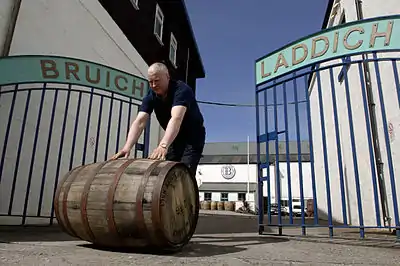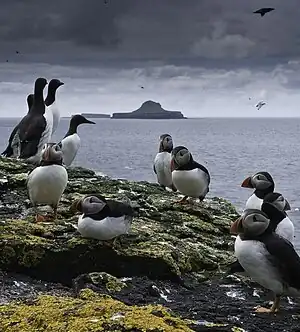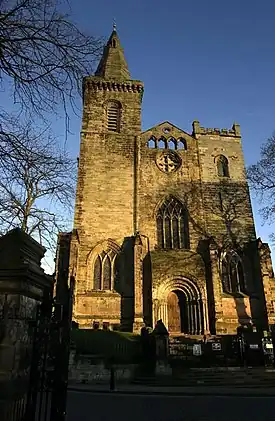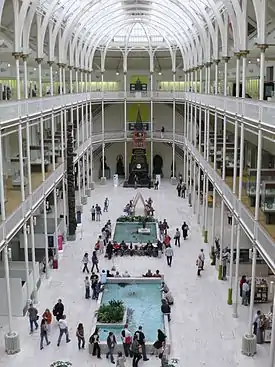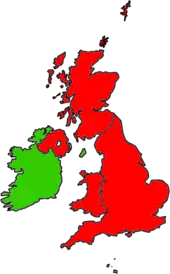| Main Page | Selected articles 1 | Selected articles 2 | Selected biographies | Selected quotes | Selected pictures | Featured Content | Categories & Topics |
Introduction
 Flag of Scotland |
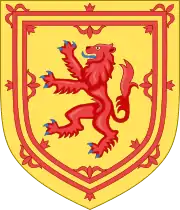 |
|
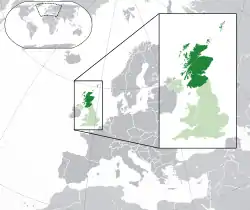 | ||
Scotland (Scots: Scotland; Scottish Gaelic: Alba) is a country that is part of the United Kingdom. It contains nearly one-third of the United Kingdom's land area, consisting of the northern part of the island of Great Britain and more than 790 adjacent islands, principally in the archipelagos of the Hebrides and the Northern Isles. To the south-east Scotland has its only land border, which is 96 miles (154 km) long and shared with England; the country is surrounded by the Atlantic Ocean to the north and west, the North Sea to the north-east and east, and the Irish Sea to the south. The population in 2022 was 5,436,600 and accounts for 8% of the population of the UK. Edinburgh is the capital and Glasgow is the largest of the cities of Scotland.
The Kingdom of Scotland emerged in the 9th century. In 1603, James VI inherited England and Ireland, forming a personal union of the three kingdoms. On 1 May 1707 Scotland and England combined to create the new Kingdom of Great Britain, with the Parliament of Scotland subsumed into the Parliament of Great Britain. In 1999 a Scottish Parliament was re-established, and has devolved authority over many areas of domestic policy. The country has a distinct legal system, educational system, and religious history from the rest of the UK, which have all contributed to the continuation of Scottish culture and national identity within the United Kingdom. Scottish English and Scots are the most widely spoken languages in the country, existing on a dialect continuum with each other. Scottish Gaelic speakers can be found all over Scotland, however is largely spoken natively by select communities on the Hebrides. The number of Gaelic speakers numbers less than 2% of the total population, though state-sponsored revitalisation attempts have led to a growing community of second language speakers.
The mainland of Scotland is broadly divided into three regions: the Highlands, a mountainous region in the north and north-west; the Lowlands, a flatter plain across the centre of the country; and the Southern Uplands, a hilly region along the southern border. The Highlands are the most mountainous region of the UK and contain its highest peak, Ben Nevis, at 4,413 feet (1,345 m). The region also contains many lakes, called lochs; the term is also applied to the many saltwater inlets along the country's deeply indented western coastline. The geography of the many islands is varied. Some, such as Mull and Skye, are noted for their mountainous terrain, while the likes of Tiree and Coll are much flatter. (Full article...)
Selected article
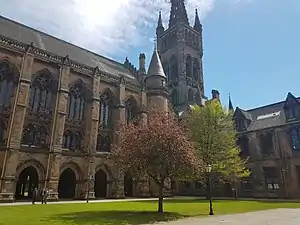
The University of Glasgow (abbreviated as Glas. in post-nominals; Scottish Gaelic: Oilthigh Ghlaschu) is a public research university in Glasgow, Scotland. Founded by papal bull in 1451 [O.S. 1450], it is the fourth-oldest university in the English-speaking world and one of Scotland's four ancient universities. Along with the universities of St Andrews, Aberdeen, and Edinburgh, the university was part of the Scottish Enlightenment during the 18th century. Glasgow is the largest university in Scotland by total enrolment and with over 19,500 postgraduates the second-largest in the United Kingdom by postgraduate enrolment.
In common with universities of the pre-modern era, Glasgow originally educated students primarily from wealthy backgrounds; however, it became a pioneer in British higher education in the 19th century by also providing for the needs of students from the growing urban and commercial middle class. Glasgow University served all of these students by preparing them for professions: law, medicine, civil service, teaching, and the church. It also trained smaller but growing numbers for careers in science and engineering. Glasgow has the fifth-largest endowment of any university in the UK and the annual income of the institution for 2022–23 was £944.2 million of which £220.7 million was from research grants and contracts, with an expenditure of £827.4 million. It is a member of Universitas 21, the Russell Group and the Guild of European Research-Intensive Universities. (Full article...) Read more ...
Selected quotes
" ... There are only two types of music: rock and roll ... "
" ... A man willing to work, and unable to find work, is perhaps the saddest sight that Fortune's inequality exhibits under this sun ... "
In the news

- 17 December 2023 –
- The Civil Aviation Authority approves SaxaVord Spaceport on the Scottish island of Unst as the United Kingdom's first spaceport for vertical rocket launches. The first launches are expected to take place in 2024. (BBC News)
- 13 November 2023 – International reactions to the 2023 Israel–Hamas war
- Scottish First Minister Humza Yousaf reiterates his call for an "immediate ceasefire" in the war on Gaza, saying that "children in Gaza don't need a pause in the killing, they need it to stop". (Al Jazeera)
- 3 November 2023 –
- The University of Edinburgh in Scotland, United Kingdom, returns the remains of four Paiwan warriors to the Taiwanese indigenous community, marking the first international repatriation of ancestral remains for Taiwan. The skulls, which the university acquired in 1907 and are believed to have been taken by Japanese forces in 1874, will be housed at the National Museum of Prehistory in Taitung while awaiting a final resting place decision from Mudan authorities. (AFP via The Straits Times)
- 26 October 2023 – 2023 Israel–Hamas war protests
- Fans of Scotland's Celtic Football Club defy their club's directives and wave thousands of Palestinian flags during their team's Champions League match against Atlético Madrid. (Al Jazeera)
- 19 October 2023 – 2023–24 European windstorm season
- Storm Babet impacts the United Kingdom, bringing gale force winds and heavy rains, killing two people in Angus, Scotland, and another person in Shropshire, England. The crew of a Danish fishing trawler is rescued by the RNLI in the North Sea. (BBC News)
Selected biography
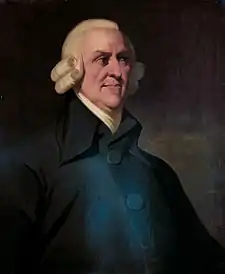
Adam Smith FRSA FRS FRSE (baptised 16 June [O.S. 5 June] 1723 – 17 July 1790) was a Scottish economist and philosopher who was a pioneer in the thinking of political economy and key figure during the Scottish Enlightenment. Seen by some as "The Father of Economics" or "The Father of Capitalism", he wrote two classic works, The Theory of Moral Sentiments (1759) and An Inquiry into the Nature and Causes of the Wealth of Nations (1776). The latter, often abbreviated as The Wealth of Nations, is considered his magnum opus and the first modern work that treats economics as a comprehensive system and as an academic discipline. Smith refuses to explain the distribution of wealth and power in terms of God's will and instead appeals to natural, political, social, economic, legal, environmental and technological factors and the interactions between them. Among other economic theories, the work introduced Smith's idea of absolute advantage.
Smith studied social philosophy at the University of Glasgow and at Balliol College, Oxford, where he was one of the first students to benefit from scholarships set up by fellow Scot John Snell. After graduating, he delivered a successful series of public lectures at the University of Edinburgh, leading him to collaborate with David Hume during the Scottish Enlightenment. Smith obtained a professorship at Glasgow, teaching moral philosophy and during this time, wrote and published The Theory of Moral Sentiments. In his later life, he took a tutoring position that allowed him to travel throughout Europe, where he met other intellectual leaders of his day.
As a reaction to the common policy of protecting national markets and merchants, what came to be known as mercantilism—nowadays often referred to as "cronyism" or "crony capitalism"—Smith laid the foundations of classical free market economic theory. The Wealth of Nations was a precursor to the modern academic discipline of economics. In this and other works, he developed the concept of division of labour and expounded upon how rational self-interest and competition can lead to economic prosperity. Smith was controversial in his own day and his general approach and writing style were often satirised by writers such as Horace Walpole. (Full article...) Read more ...
Selected picture
Did You Know...

- ... that William of Littlington opposed the division of England and Scotland into two Carmelite provinces in 1303, was excommunicated, and did four years' penance in Paris?
- ... that mountaineer and geographer Caleb George Cash was instrumental in preserving essential documents pertaining to the first known atlas of Scotland?
- ... that the bryozoan Walkeria tuberosa is sometimes referred to as Valkeria tuberosa despite being named after the Scottish natural historian John Walker?
- ... that raptor persecution is a crime against birds of prey, and in Scotland, ravens are afforded honorary raptor status?
- ... that the Scottish Register of Tartans has registered district tartans for Australia as a whole, and also a state district tartan for each of Australia's six states?
- ... that the pulpit of St George's Church, Edinburgh, was 20 ft (6.1 m) tall?
- ... that the Aesculapian Club, founded in Edinburgh in 1773, still meets twice a year?
- ... that Grey Gowrie, while holding office under Margaret Thatcher, described himself as "Irishman with a Scots name and a German wife, working, somewhat to his surprise, for a very English government"?
Get involved
| ||||||||||||||||||||||||||||||
For editor resources and to collaborate with other editors on improving Wikipedia's Scotland-related articles, see WikiProject Scotland.
To get involved in helping to improve Wikipedia's Scotland related content, please consider doing some of the following tasks or joining one or more of the associated Wikiprojects:
- Visit the Scottish Wikipedians' notice board and help to write new Scotland-related articles, and expand and improve existing ones.
- Visit Wikipedia:WikiProject Scotland/Assessment, and help out by assessing unrated Scottish articles.
- Add the Project Banner to Scottish articles around Wikipedia.
- Participate in WikiProject Scotland's Peer Review, including responding to PR requests and nominating Scottish articles.
- Help nominate and select new content for the Scotland portal.
Do you have a question about The Scotland Portal that you can't find the answer to?
Post a question on the Talk Page or consider asking it at the Wikipedia reference desk.
Related portals
Other language versions
Associated Wikimedia
The following Wikimedia Foundation sister projects provide more on this subject:
-
 Commons
Commons
Free media repository -
 Wikibooks
Wikibooks
Free textbooks and manuals -
 Wikidata
Wikidata
Free knowledge base -
 Wikinews
Wikinews
Free-content news -
 Wikiquote
Wikiquote
Collection of quotations -
 Wikisource
Wikisource
Free-content library -
 Wikispecies
Wikispecies
Directory of species -
 Wikiversity
Wikiversity
Free learning tools -
 Wikivoyage
Wikivoyage
Free travel guide -
 Wiktionary
Wiktionary
Dictionary and thesaurus
-
 List of all portals
List of all portals -

-

-

-

-

-

-

-

-

-
 Random portal
Random portal -
 WikiProject Portals
WikiProject Portals
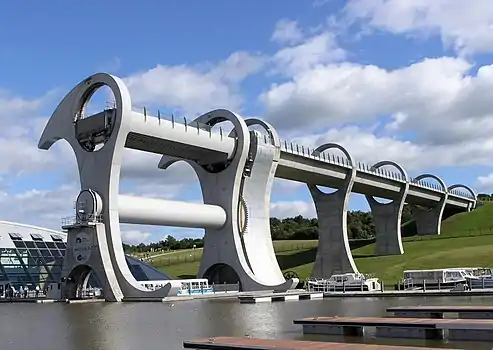
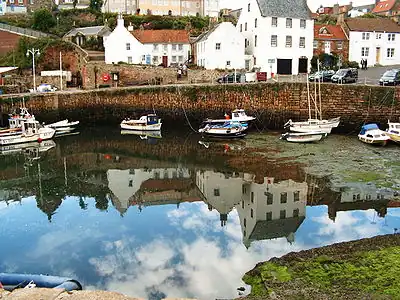

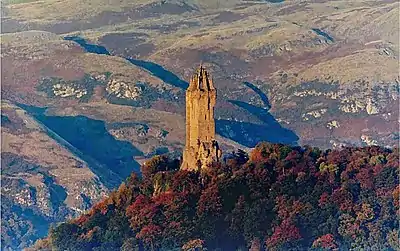
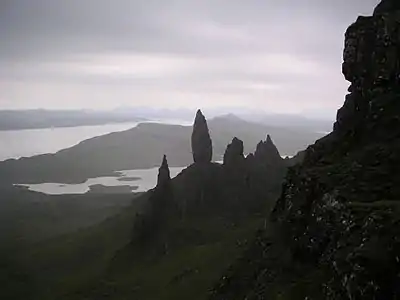
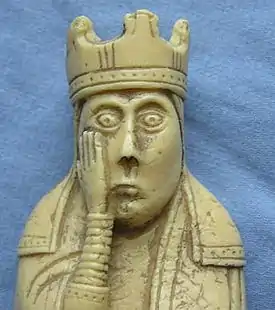
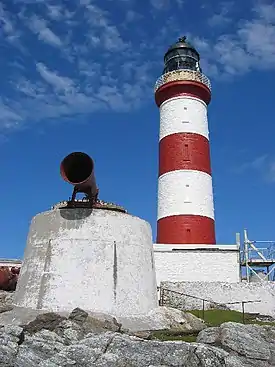

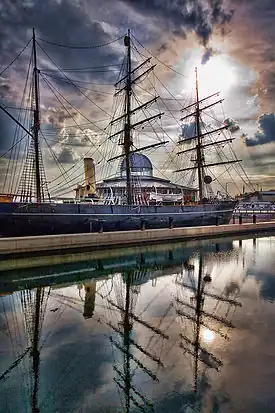
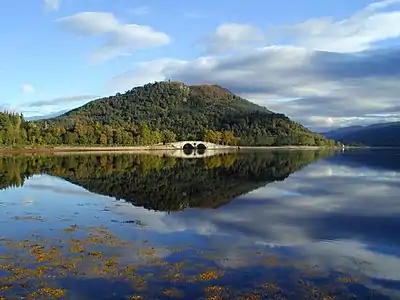
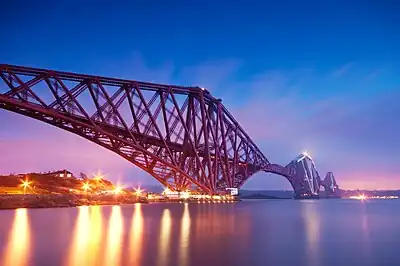

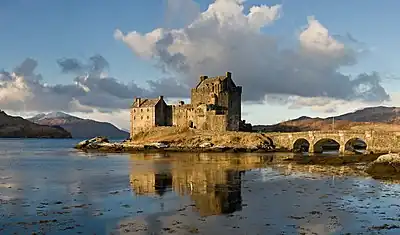

_Skating_on_Duddingston_Loch.jpg.webp)

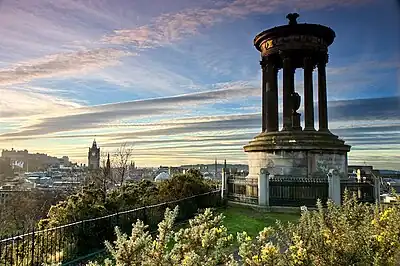
.jpg.webp)
